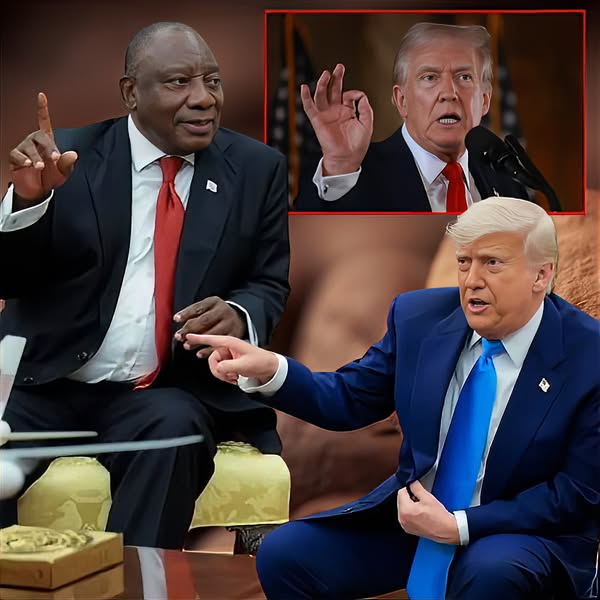President Donald Trump insisted to South African President Cyril Ramaphosa Wednesday that white farmers in his country were being killed and their land seized, fueling a false narrative of a “genocide” in yet another extraordinary Oval Office showdown with a world leader.

Key Facts
Trump spent several minutes playing clips of radical South African opposition party leader Julius Malema leading the anti-apartheid chant “Kill the Boer,” the Afrikaans word for farmer, and footage of what Trump claimed were “thousands” of graves of white South African farmers.
A South African court recently rejected claims of a white genocide in South Africa as “clearly imagined and not real,” and Ramaphosa’s administration has also said there’s no evidence to support the conspiracy.
Ramaphosa said he wasn’t familiar with the alleged gravesites and South African “government policy is completely against what [Malema] was saying,” but Trump was unmoved, insisting “you do allow them to take land, then when they take the land, they kill the white farmer . . . and nothing happens to them . . . in many cases people are being executed.”
Ramaphosa, who brought South African golfers Ernie Els and Retief Goosen with him to the White House in an appeal to Trump, said he hoped Trump would “listen to the voices of South Africa” to understand the genocide claims are false.
Trump repeatedly exploded on reporters who asked about topics other than white South African farmers during Wednesday’s sit-down, calling an NBC reporter who questioned him about the plane the Qataris are expected to give his administration an “idiot,” a “jerk” and a “terrible reporter.”
Tangent
Elon Musk has also shared clips of Malema, leader of the Economic Freedom Fighters, writing in a tweet in March that Malema led “a whole arena chanting about killing white people” and writing that his Starlink satellite internet service “can’t get a license to operate in South Africa simply because I’m not black.” Musk repeated the complaint about Starlink’s licensing issues during an interview at the Qatar Economic Forum on Tuesday. Musk is referring to Black economic-empowerment laws, introduced at the end of apartheid, that require Black South Africans to have a certain share of ownership of companies doing business there. Bloomberg reported Tuesday, ahead of the meeting, that South Africa was expected to offer Musk a loophole to the law to allow him to obtain a license, though no announcement has been made.
Key Background
Trump has granted refugee status in the U.S. to 59 Afrikaners who have claimed persecution in their home country. Trump also signed an executive order in February pausing all federal aid to South Africa and alleging the government was “fueling disproportionate violence against racially disfavored landowners.” Afrikaners are an ethnic group largely descended from Dutch settlers and largely considered to have led apartheid. South Africa enacted an Expropriation Act in January that would allow the government to seize and redistribute land in an effort to undo apartheid disparities between white and non-white South Africans. Ramaphosa said Wednesday no land seizures have occurred under the new law.
